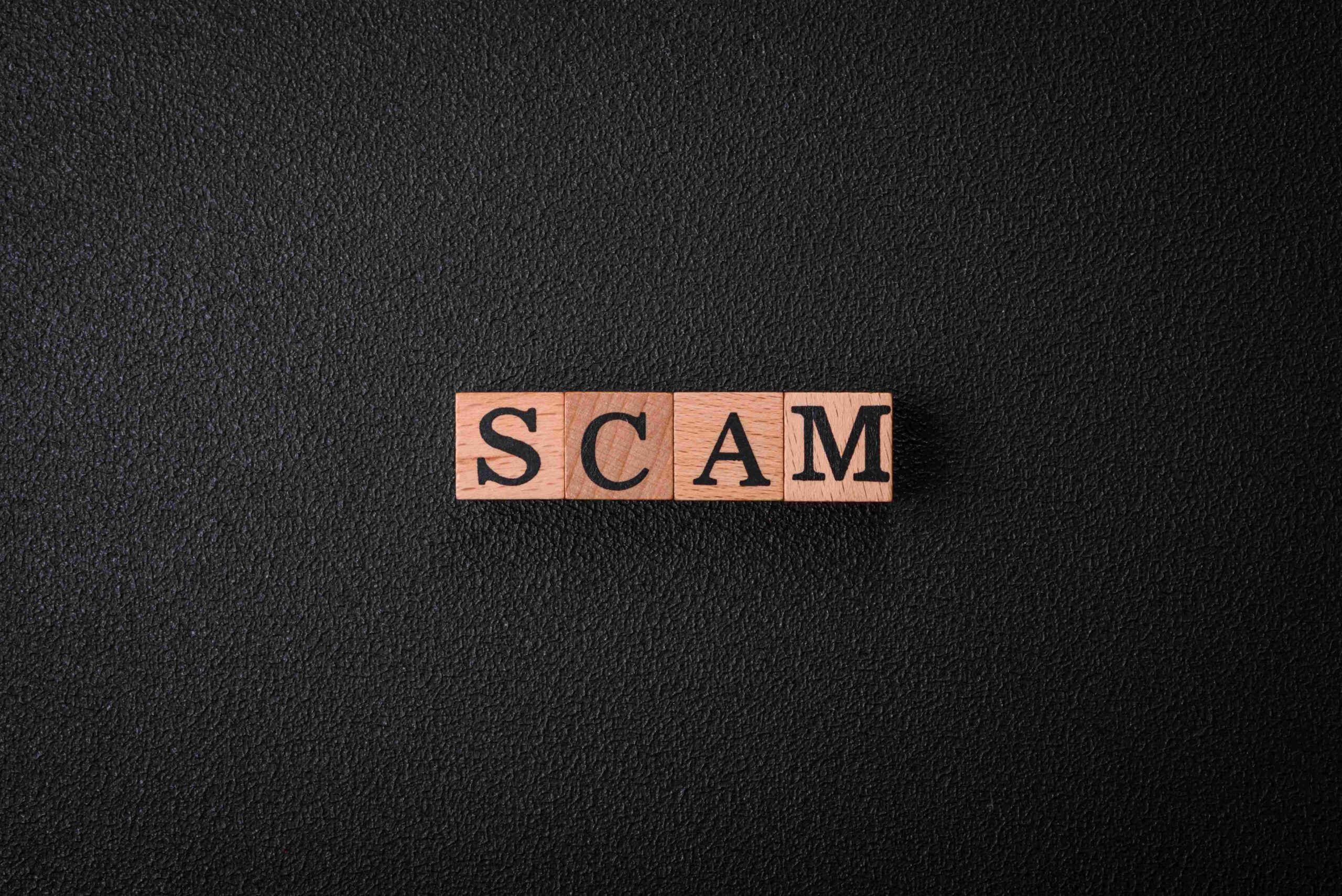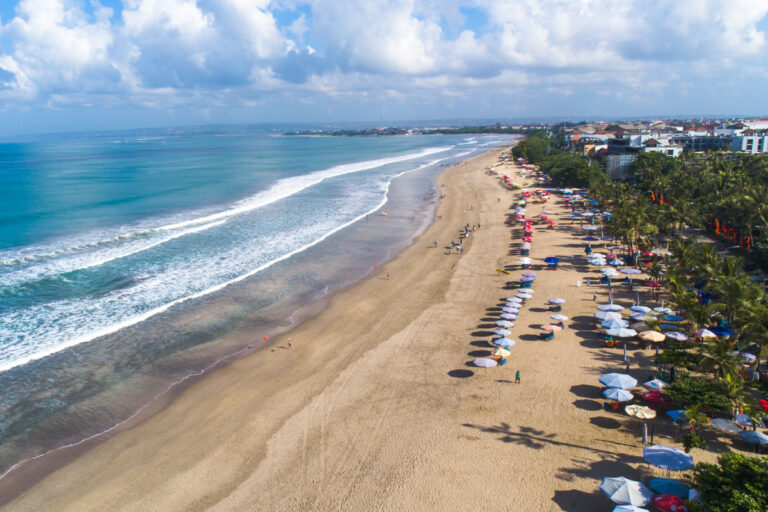Mainly Bali is Southeast Asia’s answer to paradise and there are very few common Bali scams to watch out for on your holidays.
However, there are some Bali scams and that means we’ve got a simple and straightforward guide to helping you avoid being cheated.
We’ve also got a simple guide to three “scams” that aren’t scams at all.
The 11 Most Common Scams In Bali And How To Avoid Them
Overcharging Taxi Drivers
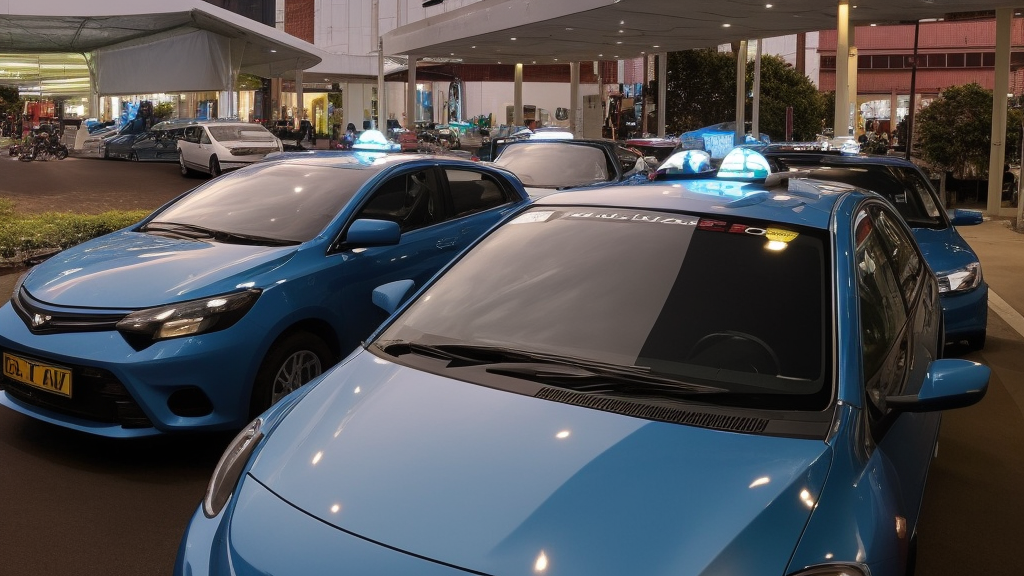
Taxi drivers, the world over, are known for their creative approach to emptying the wallets of tourists and there are some in Bali that follow that predictable pattern.
There aren’t a lot of reputable taxi companies here as Blue Bird Taxis is the only taxi company with a good reputation.
So good, in fact, that many scammers now mimic Blue Bird cars to try and fool tourists into getting into their taxis. One way to detect these fakes is to read the writing on them: Blue Biru is Blue “Blue” in Indonesian, but it’s not a Blue Bird taxi.
Bali taxi scams are particularly unpleasant as they tend to be inflicted on the rider at the end of the journey.
The driver starts to demand a much higher fare than agreed and they know that you won’t want to risk a trip to the police station to sort things out.
You can’t legally drive in Bali without an international driver’s license (which is actually an international driver’s permit) and a license from your own country and because the roads aren’t in great shape and local adherence to the rules of the road are about zero, most tourists won’t want to drive here.
That doesn’t mean that you need to use a scammer at any time during your stay, however.
The Cure: Grab, Gojek, The Official Blue Bird App, Private Drivers And Taxis From The Blue Bird Group

The way to avoid this scam is simply to move with the times. Most people in Bali will now use Grab or Gojek, the local equivalents of Uber, to hail a taxi.
There are even Grab and Gojek waiting rooms at the Ngurah Rai Airport to allow you to escape the endless procession of taxi touts (many of whom are scammers) while you wait for your ride share.
Rideshare drivers in Bali are all about professionalism (just like in most of Southeast Asia), and once you’re in the car with a driver from these apps, they can’t change the fare.
We wholeheartedly recommend these ridesharing services! You can even grab their apps before getting a SIM card, thanks to the free Wi-Fi available in the arrivals hall at Denpasar Airport. Easy peasy!
There is also a Blue Bird App from the Blue Bird Group which unlike Uber only deals with the Bluebird Taxis and guarantees a fixed price for your ride.
You may also find Blue Bird Taxis outside the arrivals hall where you can catch a ride, though we’d note that you need to be certain that it’s a Blue Bird and not a scammer’s copy of one that you’re using before you agree on the price.
One thing you should know is that there is sometimes an area around some famous attractions here in Bali where rideshare drivers are not permitted to pick up passengers, you may have to walk a small distance to a pick up point in these cases.
What’s It Like In Canggu, Bali?
Commission Scams In Bali

While we’ve read online about private drivers offering discounts on car hire only to force the unsuspecting individual into a day of touring places that offer cheaply produced goods at high prices, we’ve never actually heard of this happening in Bali.
While that particular scam might be a classic move by tuk-tuk drivers in Bangkok, you won’t find it happening here.
That said, it doesn’t mean there aren’t some drivers who’ll subtly boost their profits by taking you to places that kick back a bit of cash to them. Always be aware of your route and don’t be shy to ask where you’re headed!
This will occur frequently if you ask the driver to recommend a restaurant or to choose the coffee plantation that you visit.
Now, in the worst-case scenario, this means that you’re paying a little more money for a service, or you’re not seeing the best places when it comes to plantations.
The Cure: Choose Your Own Restaurants And Coffee Plantations
We’d recommend that you do what most people do and choose where you want to go before you go out for the day.
Agree on the itinerary with the driver and then don’t give it a second thought. Your driver won’t get angry with you because they missed some small money from a restaurant.
Airport Porters Overcharging
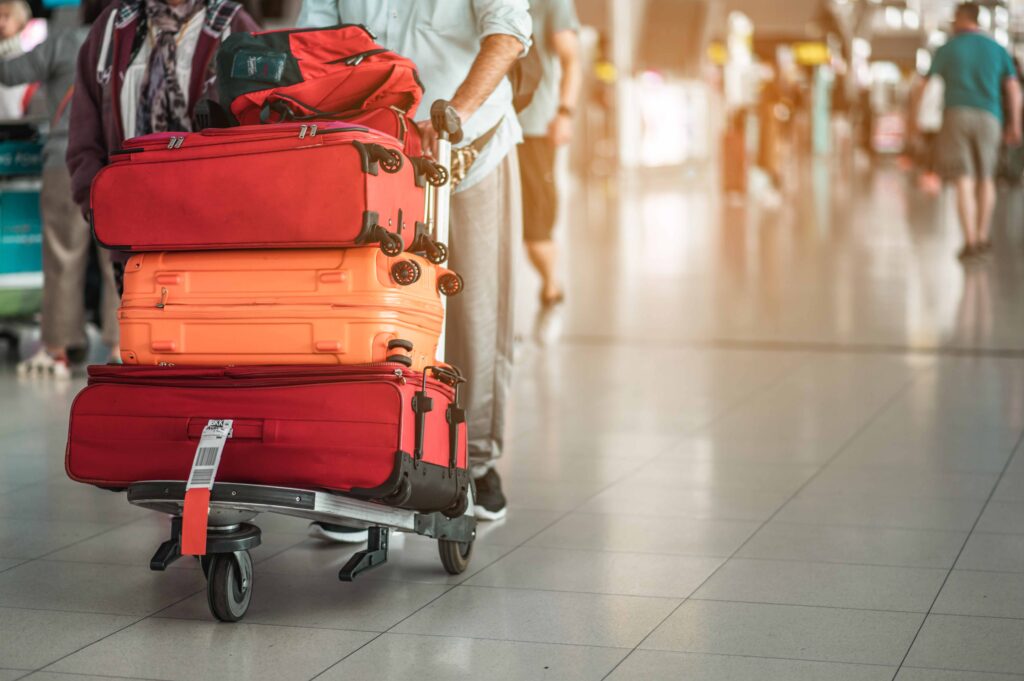
This scam comes and goes but it’s very easy to avoid. In the airport, you will find that there is often a queue of porters waiting with baggage trolleys for you.
This service is meant to be reasonably priced, but often the porters demand considerably more when they arrive with your bags at the taxi and you won’t want to argue with them as you will be focused on getting to your hotel.
Most of us are quite capable of pushing our own trolleys and given that the trolleys are completely free to use, there’s no need to pay any fees to a porter.
Scooter Scams
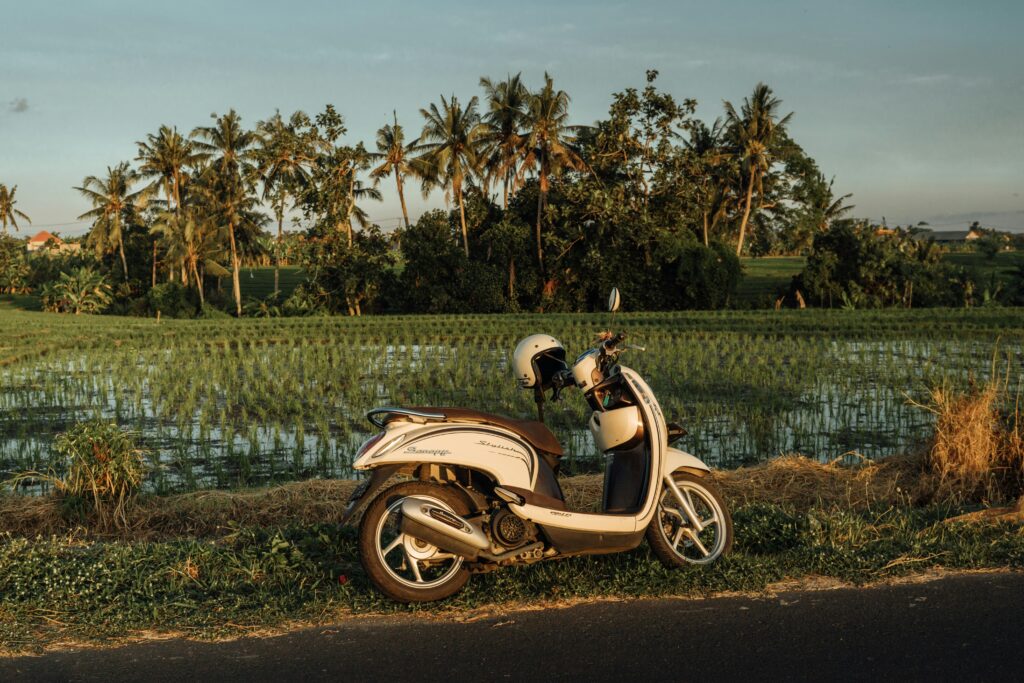
This is nowhere near as common in Bali as it is in Thailand and, in fact, we’d say that most scooter rental places barely glance at a scooter before it’s accepted back into stock.
However, occasionally people claim that they’ve taken the scooter back to the rental agency only to find that they’re facing a huge bill for damage that they didn’t cause.
You are more likely to run into this issue if you take a new scooter out and actually scratch it (which is all too easily done in the narrow lanes and parking lots of Bali). So, be careful or take a battered looking scooter to begin with.
The Cure: Take Your Time And Take Photos Before You Drive Off
This is a super easy scam to avoid. When you rent the scooter, take pictures of every part of it and have the agent agree that this is the state you rented it in.
It only takes a couple of minutes and saves negotiating when you return the scooter.
Petrol Prices Through The Roof
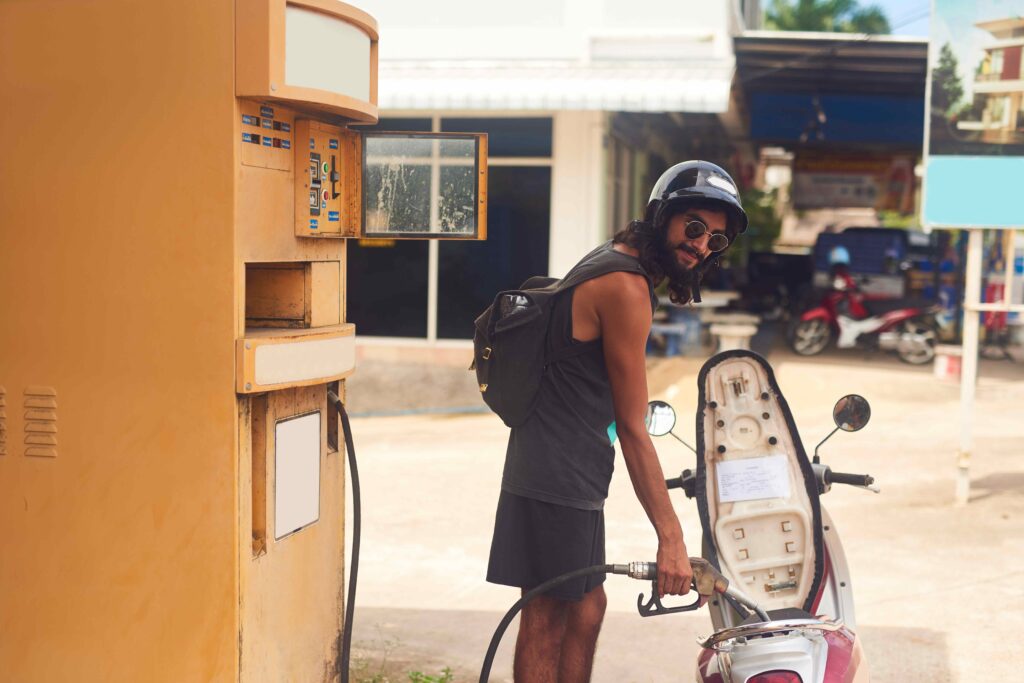
Many people buy their petrol from vendors selling it out of bottles by the side of the road.
Occasionally, a foreigner will come to one of these vendors and after placing a bottle’s worth of fuel in the tank, will find out that they’re being charged much, much more than the petrol is worth.
It’s hard to negotiate with the vendor when you’ve already used the product.
The Cure: Buy Your Petrol At Petrol Stations
This is a very easy scam to avoid just buy your fuel at official petrol stations which have the price marked on the pump.
Alternatively, if you have no choice but to buy a bottle of petrol, make sure to fix the price before you use the bottle.
Free Tours Get Expensive
You may find that you get to an attraction and a young local steps up (they are usually young boys) and offers to guide you around for free.
Then, at the end of the tour, they demand an expensive tip a tip that is much higher than the cost of an official guide.
The Cure: Hire An Official, Licensed Guide Or Say “No Thanks”
You can easily avoid this scam by refusing the offer of a free tour and/or hiring your own official guide to a place.
Beach Vendors Over-Promising And Under-Delivering
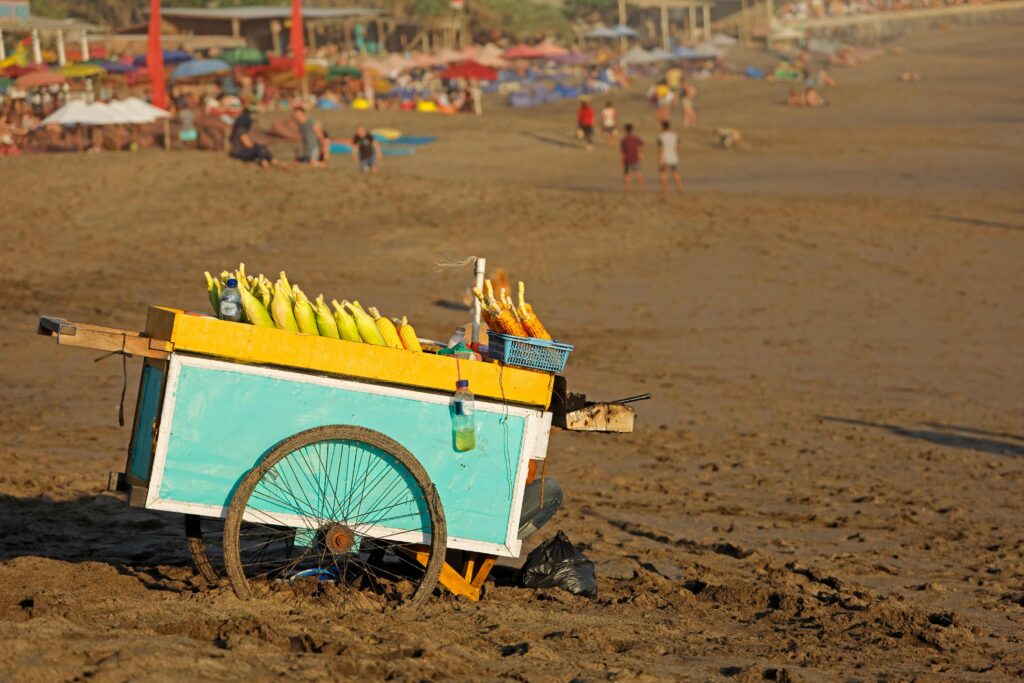
It’s fair to say that there are a lot of touts on some of the most popular beaches in Bali and mostly, whatever it is they’re selling can be bought more cheaply and of a higher quality elsewhere.
This goes for everything from massages to t-shirts. Some people are happy to pay for the convenience of doing business on the beach, others feel this is a scam.
The Cure: Learn To Say “No”
It’s super easy to avoid this scam. Just say “no” to touts. They’ll move on when you ignore them for a minute or two.
Expensive Photographs At Tourist Traps

Yes, there are often photographers at some of the most popular tourist traps (and a bunch of them at the Lempuyang Temple where the famous photograph of the gate and the visitor reflected in water is a trick played with a mirror and an iPhone) and yes, they often charge outrageous fees for these photos.
We’d recommend that even if you’re happy to pay a premium for a photo that you ask for the price in advance and haggle a little.
The Cure: Learn To Say “No” And Take Your Own Photos
However, if you see this as a scam, the easiest thing to do is take your own camera and make your own photos.
This is allowed everywhere except at that famous spot at Lempuyang Temple, that spot is the purview of the local photographers only.
Unofficial Money Changers Rip You Off
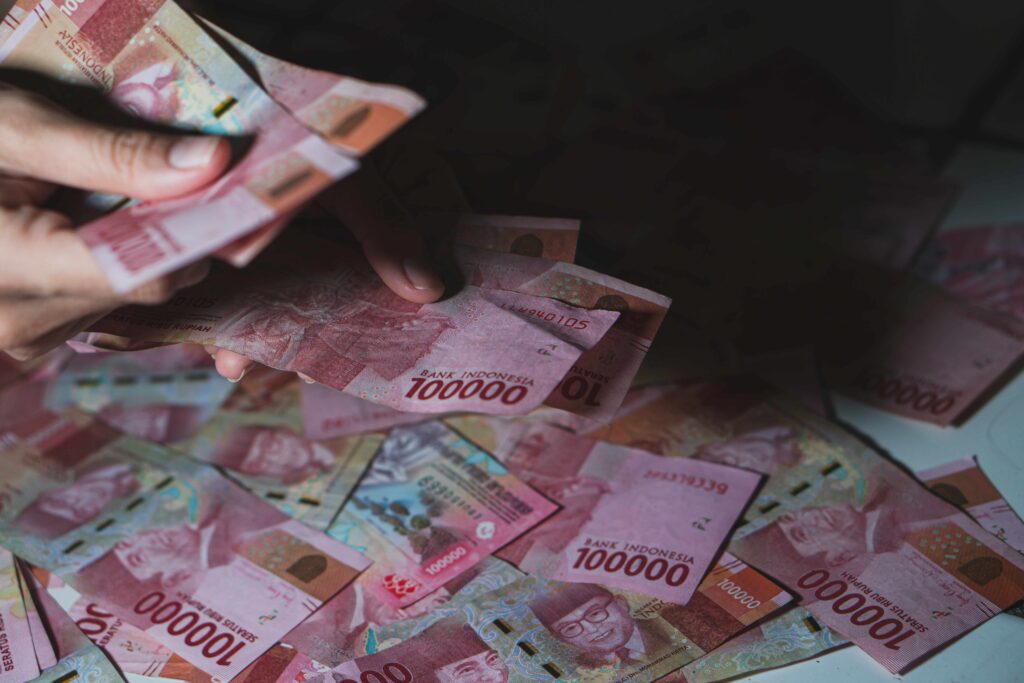
This must be one of the most common scams in Bali. Because most people only fall for this scam once, the unofficial money exchanges are always looking for fresh targets and often send people out in the street to solicit business for them.
It’s very easy to recognize a money changer that isn’t official, they’re offering an exchange rate that’s far too good to be true and they don’t have the official QR code in the window to confirm their license.
The scam works by distracting you as they count money to ensure that the rate you recieve in reality is far, far worse than the ones provided by most ATMS or official money exchanges.
The Cure: Use Official Money Changers Only
You can easily find an official money changer in your area, we’ve got a list of the main money changers here on our website.
The Indonesian Rupiah is freely traded and the exchange rates are fixed everywhere in the world.
If somebody is offering you a rate that’s as good as or better than the current Interbank rate (Google for your currency to IDR to find that rate), it’s a scam as they can’t make a profit like that.
ATM Skimming

This used to be one of the most popular scams in Bali, but ATM skimming seems to be becoming less popular as more and more ATMs are being designed to be tamper-proof.
That’s not to say that ATM skimming never happens, though, and when it does, it can be a real pain to put right.
A skimming machine is placed on the ATM that is undetectable to the user. It copies your card and copies your PIN when you enter it. This makes it very easy for criminals to steal from your account.
The Cure: Use ATMS In Banks, Shopping Centres, Etc.
We strongly recommend that you use ATMs in places where it’s difficult to tamper with them. Inside banks is best, but those located in malls under cameras, or inside stores or hotels are much less likely to be vulnerable to tampering than those on the street.
Pro-Tip: ATMs in Bali dispense denominations of bills based on the number written on the top of the ATM. It will either dispense 50,000 or 100,000 IDR bills. If it dispenses 100,000 IDR bills, you can usually withdraw more cash in one transaction than from a 50,000 IDR machine and that means saving on bank charges, which aren’t a scam but are annoying.
Bad Alcohol And Methanol Poisoning
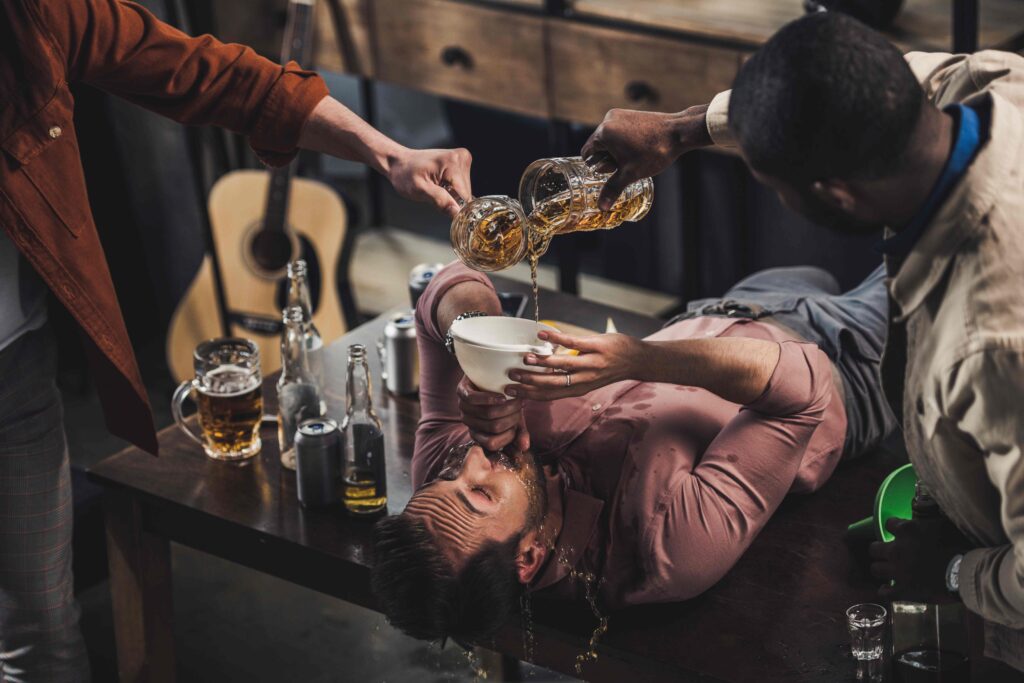
Because it’s technically forbidden to bring in more than one bottle of imported spirits when you arrive in Bali and if you purchase bottles in a pub or supermarket here, they’re super expensive, it’s natural to look around for a cheaper substitute.
Many people then turn to Arak, the local spirit, and there’s nothing wrong with drinking Arak from a reputable source – there are some great Arak companies here in Bali.
But unofficial Arak bought in a plastic bottle? That’s asking for trouble. This kind of cheap alcohol is often contaminated with methanol. And drinking methanol can be fatal.
The Cure: Only Buy Your Alcohol From Trustworthy Sources And Never Buy Alcohol That’s Too Cheap To Be Believed
You have to understand that Bali is part of Indonesia and Indonesia is a Muslim majority country. Thus, while alcohol is legal, it is taxed quite highly (though not as highly as in your own country if you’re from the West) and it’s more expensive than it is in much of the rest of this part of Asia.
That’s just how it is and if you don’t want to get poisoned, it’s best to buy your alcohol from a reputable source. Wine is particularly expensive in Bali but the good news is that beer is very affordable.
When Is A Bali Scam Not A Scam? 5 “Scams” That Aren’t Scams At All
When The Police Fine You For Breaking The Law
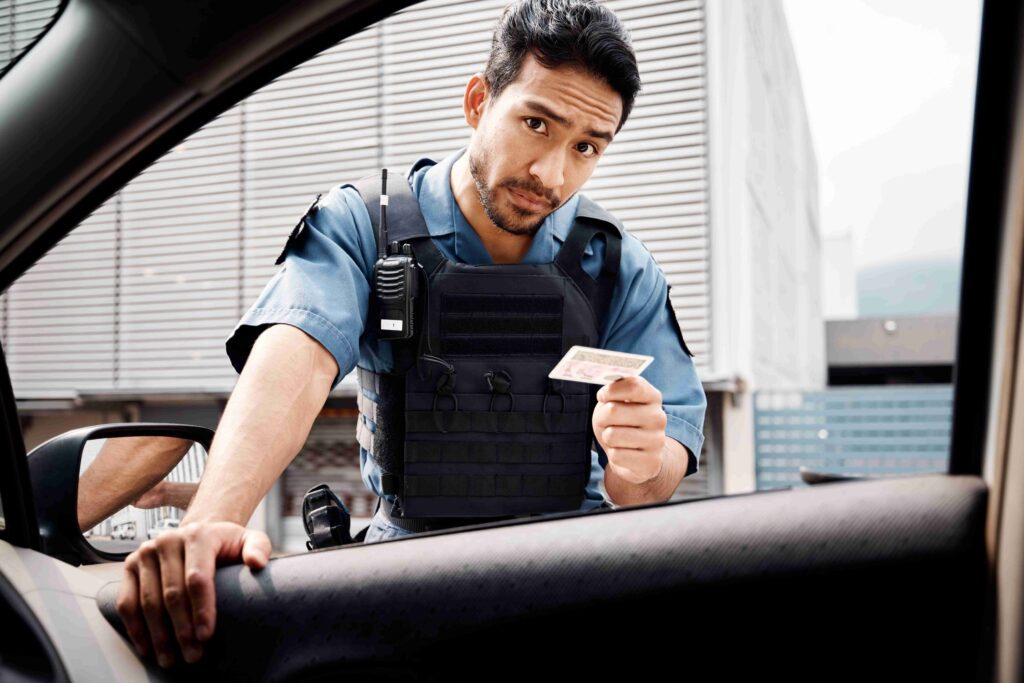
We find this “scam” fairly amusing.
There are a number of bloggers out there expressing their outrage that when they are caught breaking traffic laws many police officers prefer to extract a small fine upfront in cash rather than arresting you and dragging you off to the station to be charged.
Given that many tourists, sensibly, would prefer to avoid any serious trouble with the law over a minor violation of traffic rules, this works out to everyone’s benefit, except for, perhaps, the national treasury.
Now, you can, of course, demand to get arrested and then spend some time in a jail cell before being fined and deported, but it’s best to carry some small bills in your pockets and be prepared to negotiate (haggling over an “on the spot fine” is perfectly OK) if you’re caught breaking the traffic rules.
(Though for small traffic offences, they may just issue you a fixed price penalty ticket, which is still a pain as they must be paid at the police station).
But we should note, that it’s not a scam when you’re asked to make amends for breaking the law.
The Cure: Obey The Law
Of course, you can avoid any trouble on the road by following the law. This includes adhering to the helmet policy (you must wear one while moving). Having the correct driving permit and license, etc.
Paying Too Much At Markets
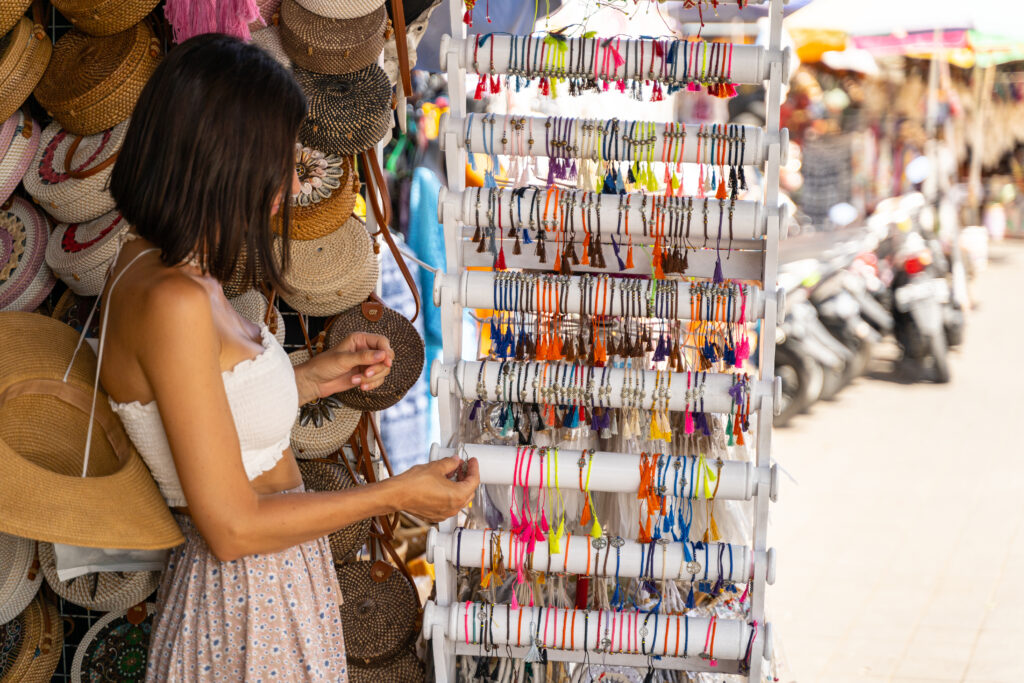
Everyone falls victim to this non-scam at some point in their time in Southeast Asia. They go to a market and pay way too much for whatever it is that they bought.
Then they proudly display their purchase to someone who knows better and are told they were ripped off.
This isn’t a scam. This is how markets work all over Asia. Unless there’s a marked fixed price, the price isn’t fixed. The first price you are quoted isn’t the price that the vendor is happy to sell the item for, it’s their dream number.
The Cure: Learn To Haggle
If you’re keen on snagging the best prices in Bali—or really anywhere else in Asia—you’ve gotta master the art of haggling!
When the vendor throws out their initial price, take that as your cue to jump in with your first offer, which should be about 10-20% of their quote.
From there, it’s a delightful game of back and forth until you settle on a price that feels right. If you’re chuffed with the final deal, give a friendly shake to seal the agreement, and then it’s time to make the purchase!
You can back out at any moment until you’ve locked in a price, but once you shake on it, that item is yours.
Haggling isn’t just a clever way to get the best bang for your buck—it’s also a heap of fun!
Getting Robbed And Blackmailed By Monkeys
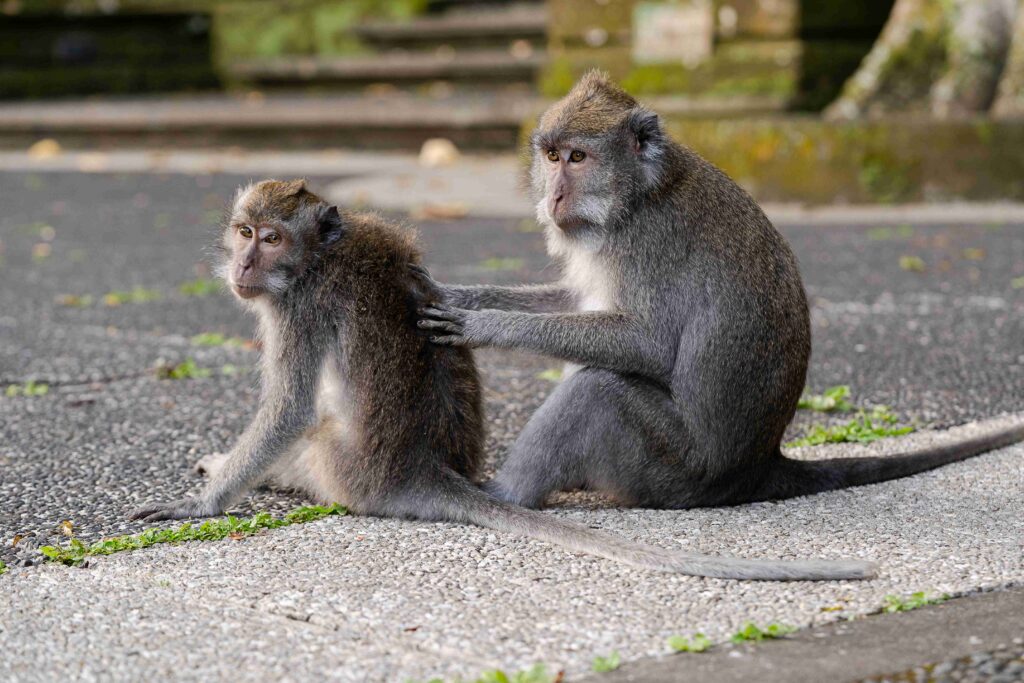
We have this in our “not a scam” category because monkeys aren’t scammers, they’re wild animals that have learned some tricks.
The monkeys of Uluwatu Temple have, in fact, learned how to steal items from tourists and then to roughly value the item and will only return it if they are paid out in food appropriate to that value.
So, if they steal your camera or your phone, they are expecting a big payday. Much less so if they steal your reusable water bottle.
This behaviour is unique to the monkeys at Uluwatu, though some reports from the Sacred Ubud Monkey Forest suggest that those monkeys might be following the same learning curve.
The Cure: Learn To Look After Your Things
Monkeys can only steal from you if you make it easy for them to do so.
We’d recommend keeping at arm’s length from monkeys of any kind and ensuring that phones, cameras, etc. are kept away from the animals too.
Learning That Drugs Are Illegal After Being Arrested

The police in Indonesia and Bali strictly enforce the drug laws here and the drug laws in this country are very severe indeed.
Whatever you may have heard everything from magic mushrooms to heroin is illegal and you will get into severe trouble if you are caught in possession of drugs here.
Indonesia has the death penalty for drug possession and it’s not afraid to use it on foreigners. Several foreigners have been executed in recent years and your government can’t help you if you are arrested.
Yes, in Kuta and other popular tourist areas, you may be accosted by friendly locals offering something, but they are often working with the local police and after you buy something, you will swiftly find yourself arrested.
The Cure: Avoid Drugs In Bali Except For Alcohol And Those Sold In Pharmacies
We simply cannot stress enough how important it is to avoid drugs in Bali. If you want that kind of holiday, you’d be better off visiting Portugal or somewhere else famed for its lenient laws.
Here in Bali, we’d stick to drinking alcohol and the only drugs you should have on you are those sold over-the-counter in local pharmacies or prescribed by a local doctor.
Paying Too Much For Entrance Fees At Attractions

We completely agree that 50,000 IDR (\$3 USD or \$5 AUD) for the privilege of taking photos at the Handara Gate (the gates to a golf course) is a bit of a rip-off.
But it’s not a scam, nobody is forcing you to trek out there to get that popular Instagram shot, that’s on you.
There are entrance fees for almost every attraction in Bali and they are not kept as a secret. You can find them online without much effort at all.
The Cure: Doing Your Research Before You Fall Victim To An Expensive Attraction
You don’t need to visit every attraction in Bali. If you want to cut costs, you can simply avoid the attractions that don’t seem like good value for money.
Google places before you go and ask yourself whether you feel they’re worth the money they are charging to get in. You don’t have to pay to visit anywhere you don’t want to visit.
FAQs
How Do I Not Get Ripped Off In Bali?
To keep yourself safe, the two most important things you can do are to download and use the Grab and Gojek apps when you need a taxi, and to only exchange money at licensed money changers.
Beyond that, a good dose of common sense will go a long way in steering clear of scams. If something sounds too good to be true, you can bet it probably is! Plus, doing a bit of research before your trip can really make your life a whole lot easier.
Are There Pickpockets In Bali?
Yes, petty crimes such as pickpocketing and even snatch-and-grab thefts are a minor issue in Bali.
However, it’s fair to say that the crime rate falls with each passing year in Bali, thanks to the introduction of both better policing and CCTV cameras all over the popular tourist areas of the island.
What Is The Crime Rate In Bali?
We don’t have an up-to-date figure but in 2020, the crime rate was 0.6% or 60 crimes for every 100,000 people on the island. That’s a very low crime rate and it’s worth noting that the majority of crime here is petty crime.
Bali has one of the lowest murder rates on Earth and most crimes of violence do not involve foreigners.
However, any violence that does happen to foreigners tends to be foreigner-on-foreigner violence.
How Safe Is Bali For Tourists?
Bali is considered to be one of the safest places to visit in Asia and in our experience, you will find that crime tends to take place around tourist traps and is usually petty in nature – e.g. pickpocketing and snatch-and-grab style crime.
You should, however, take sensible precautions as you would anywhere else on Earth and that includes ensuring that you’re not walking alone late at night.
Final Thoughts On Bali Scams
Scams in Bali are nowhere near as common as people might have you believe and most people will visit the island without ever being scammed.
However, the easiest way to avoid common Bali scams is to use common sense and follow the tips above.
Most Balinese people aren’t keen on hustling tourists, but wherever you find holidaymakers, there’ll always be a handful of locals looking to cash in.
The two most prevalent scams you’ll encounter are taxis pretending to be Bluebird cabs and dodgy money changers luring you in with exchange rates that sound “too good to be true” —because they absolutely are!

